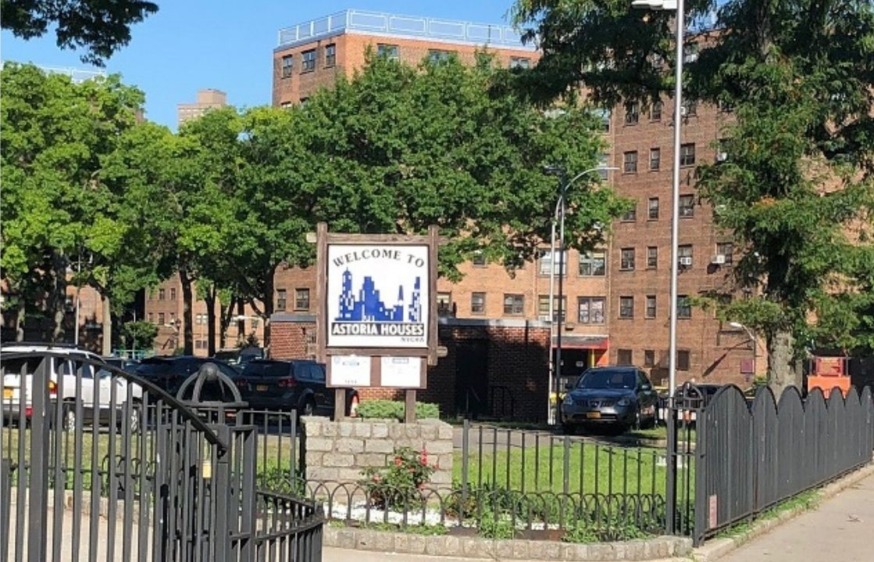
Astoria Houses (Queens Post)
Oct. 29. 2020 By Christian Murray
If the gas line is down–the rent needs to come down with it, according to Astoria elected officials.
State Sen. Mike Gianaris announced today that he is introducing legislation that provides rent relief for NYCHA tenants should they experience utility outages.
The bill, which will be co-sponsored in the assembly next year by incoming Assembly member Zohran Mamdani, would require a 10 percent rent reduction during an outage.
The legislation was prompted by the gas outage at a NYCHA building at Astoria Houses. The building has been without cooking gas since Sept. 23 and 48 households at the 1-04 Astoria Blvd. development have been unable to prepare hot meals.
The rent at most NYCHA buildings includes utilities, Gianaris says.
“Months-long utility outages are unacceptable for any New Yorker, whether in private or public housing,” Gianaris said in a statement. “NYCHA residents should not be expected to pay full rent, which typically includes utilities, when they are not receiving the service.”
Gianaris said that his legislation would create a financial incentive for NYCHA to fix service in a more timely fashion.
The bill, called the NYCHA Utility Accountability Act, would reduce a tenant’s rent obligation on a prorated basis when there is an outage. The reduction would be the greater of 10 percent of the tenant’s rent or $75 per month. The utilities defined by the bill include, gas, heat, water and electrical service.
Gianaris said the outages at Astoria Houses are not isolated and that there have been service disruptions at NYCHA buildings across New York City.
Mamdani said that he will sponsor the bill when the legislative session begins in January.
“The ongoing utility outages so many in our neighborhood are experiencing are only the latest example of intolerable conditions and unacceptable mismanagement in New York’s public housing system.”
A spokesperson for NYCHA said that the legislation would not expedite repairs and could make the problem worse.
“Reducing or stopping rent payments would not speed up the process and would adversely affect NYCHA’s ability to make repairs, as it would decrease NYCHA’s day-to-day operating budget,” a NYCHA spokesperson said.
The agency said the process of restoring gas is complex and there is no quick turnaround.
“Restoring gas for private or public housing is a lengthy, multi-pronged process that involves numerous steps, including shutting off the gas, visiting the units for a scope of the work needed, making necessary repairs, investigating for asbestos, getting permit and inspection approval from our city partners and then coordinating with the utility company to safely turn the gas back on,” the NYCHA spokesperson said in a statement.
